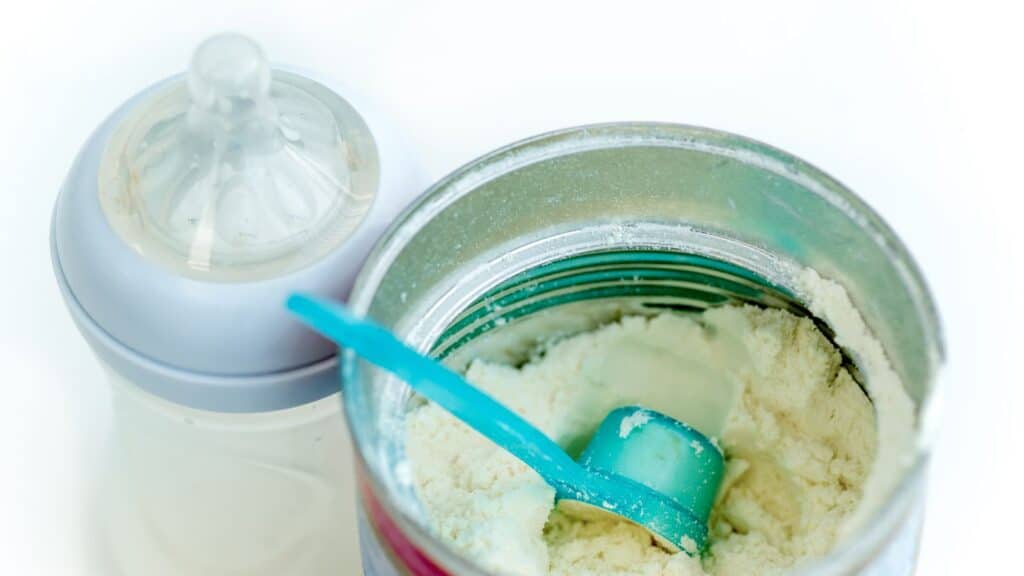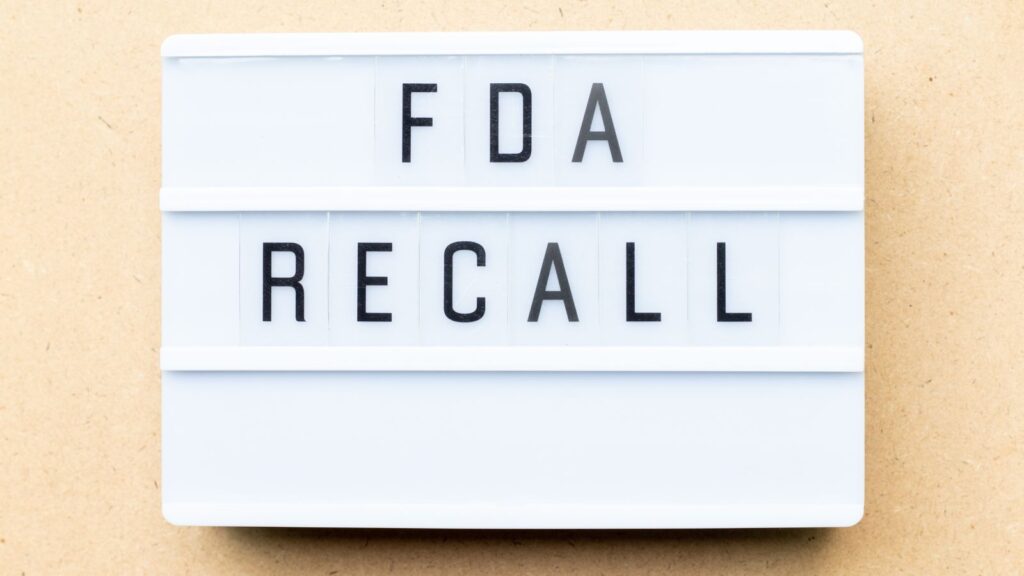The US Food and Drug Administration (FDA) has warned that baby formula may be contaminated with Cronobacter bacteria. This warning concerns products sold under the names Crecelac, Farmalac, and Farmalac Low Lactose. The presence of Cronobacter bacteria can lead to serious infections in infants, making this issue a critical concern for parents and caregivers.
This guide aims to provide an overview of the current situation regarding the contamination. It will also offer guidance on the precautions that parents and caregivers should take. The safety of infants is the priority, and adhering to the FDA’s advice is crucial in preventing infections.
Background on Cronobacter Bacteria
Cronobacter is a harmful bacteria that can cause severe infections in babies, such as sepsis, meningitis, and brain abscesses. These infections may lead to delays in development, motor skills issues, and in serious cases, death. The US Centers for Disease Control and Prevention (CDC) lists common symptoms of a Cronobacter infection, which include:
- Jaundice: This is when the skin and eyes turn yellow, indicating an increase in the chemical bilirubin. It usually signals liver problems caused by the infection.
- Abnormal Body Movements: Watch for weird or uncontrollable movements, like shakes or twitching. Which might show brain or nervous system damage.
- Irritability: If a baby is fussier, more restless, or more agitated than usual. It might mean the baby is uncomfortable or in pain due to the infection.
- Poor Feeding: Discomfort or pain from the infection might cause difficulty or unwillingness to eat.
- Change in Body Temperature: An unusual or lasting change in how warm or cold the baby feels can be a sign of infection or other health issues.

History of Cronobacter in Baby Formula
Cronobacter bacteria, formerly known as Enterobacter sakazakii. It has been linked to contaminated powdered infant formula since the 1980s:
- The first documented case of neonatal meningitis caused by Cronobacter was in 1958. However, the bacteria were not well-known or understood at the time.
- In the 1980s, experts began to recognize the potential for Cronobacter to infect infants through powdered baby formula. This led to increased awareness and testing for the bacteria.
- In 2001, a Tennessee baby died following a Cronobacter infection linked to a batch of powdered formula from Mead Johnson. This prompted the company to voluntarily recall that batch in March 2002.
- In 2009, the CDC reported that two infants in New Mexico had been confirmed with Cronobacter during a 2008 outbreak. One died and the other survived with severe brain damage.
- In 2012, a Missouri infant died after consuming Cronobacter-contaminated Enfamil Newborn formula from Mead Johnson. This led to retailers pulling the product from shelves while regulators investigated.
- In 2022, two infants died after consuming Cronobacter-contaminated baby formula produced by Abbott Nutrition. It leads to a major recall and plant shutdown.
FDA Investigation and Findings
The FDA investigation into the Crecelac infant formula products found Cronobacter contamination in a sample of Crecelac Infant Powdered Goat Milk Infant Formula. They identified this contamination in a sample collected from a retail store in Texas.
Limited sampling of other versions of the formula included in the recall did not detect Cronobacter. The recalled products have not been associated with any reported illnesses.
Precautions
FDA has issued a warning about baby formula contaminated with Cronobacter bacteria. Because it can cause severe infections in infants. The affected products are:
- Crecelac Infant Powdered Goat-Milk Infant Formula with Iron 0 to 12 months
- Farmalac Baby Powdered Infant Formula with Iron 0 to 12 months
- Farmalac Baby Powdered Infant Formula with Iron and Low Lactose 0 to 12 months
These products did not comply with FDA regulations and have been recalled. The FDA is working with the manufacturer and distributors to ensure they execute the recall effectively.
Recommendations
Parents and caregivers must consider these safety recommendations seriously. These guidelines aim to protect infants from potential health risks.
- Do not use these specific brands: Advisors warn parents and caregivers not to feed these formulas to infants due to the risk of Cronobacter contamination.
- Consult healthcare providers for alternatives: Those seeking goat milk infant formulas that have completed the required premarket notification process should consult their healthcare providers for alternative options.
- Monitor for symptoms: Parents should monitor their infants for symptoms such as jaundice, abnormal movements, irritability, poor feeding, and changes in body temperature if they have already consumed the formula. If any of these symptoms occur, parents should contact a healthcare provider immediately.
Policy Implications
The FDA collaborates with the manufacturer and distributors to ensure they execute the recall effectively and prevent further contamination.
The shortage of baby formula could have been lessened if everyone had paid more attention to the FDA’s early warning about the recall. If the public, companies involved, and government officials had acted sooner when the recall first came out, things might have been better.
Formula Crisis
Politico reported in 2022 that officials did not inform President Biden and his team about the baby formula problem for weeks after the recall happened in February. They didn’t realize how bad the shortage was until April.
On top of that, people online and on social media didn’t start talking about the recall and lack of baby formula until May. That’s when people really started to notice that it was hard to find formula in stores and that it was out of stock more often.

Alternatives to Consider
Consider these alternatives and take proper precautions. Parents can minimize the risk of Cronobacter contamination in their baby’s formula and ensure a safe and healthy diet for their child.
- Liquid Formula: Manufacturers generally consider liquid infant formulas safer than powdered ones because they sterilize them during production, reducing the risk of Cronobacter contamination. If possible, consider using a liquid formula as an alternative.
- Breastfeeding: Breast milk is the best source of infant nutrition and provides natural immunity. If breastfeeding is not possible, consult a healthcare provider for guidance on alternative nutrition options.
- Hot Water Preparation: When preparing powdered formula, use hot water of at least 70°C to kill Cronobacter bacteria. This is especially important for infants with weakened immune systems.
- Proper Storage and Handling: To prevent contamination, ensure proper storage and handling of powdered formula. Follow the manufacturer’s instructions for storage and handling, and keep the formula away from contaminated surfaces.
- Consult Healthcare Providers: Consult with healthcare providers for advice on baby nutrition and any concerns about Cronobacter contamination. They can help determine the best course of action for your child’s needs.
- Natural Antimicrobial Compounds: Research has shown that certain natural antimicrobial compounds, such as those derived from plants and animals, can exhibit antibacterial activity against Cronobacter. You may use these compounds to control Cronobacter contamination in infant formulas.
- Monitoring and Reporting: Watch for signs of Cronobacter infection, such as fever, poor feeding, excessive crying, and very low energy. If symptoms appear, seek medical attention immediately. Additionally, any suspected cases of Cronobacter infection should be reported to authorities to help track and prevent future outbreaks.
How to Respond if Your Baby is Affected
If you think your baby has had a baby formula with harmful Cronobacter bacteria, it’s very important to act fast. These germs can make babies very sick and can be dangerous. Here’s what to do:
- Get Medical Help Right Away: If your baby has had this kind of formula, see a doctor as soon as you can. Tell the doctor about the formula.
- Watch for Signs: Keep a close eye on your baby for any unusual signs. This includes things like a fever, being upset more than usual, or not wanting to eat.
- Follow the Doctor’s Advice: The doctor might start treatment to help your baby. Make sure to do exactly what the doctor says to keep your baby safe.
Save the Formula Container
If your baby drank from a formula that might be contaminated, keep the open container — it’s important. This can help doctors figure out if the germs that made your baby sick are really in the formula. Here’s what you should do:
- Keep the Formula Container: Save any leftover formula and the container in which it came.
- Give It to the Doctor: Bring the container with you when you see the healthcare team. This will help them check for bacteria and decide the best way to treat your baby.
Watch for Long-Term Health Issues
Babies who recover from Cronobacter bacteria infections might still have health problems later on. These issues can affect their brain development and other parts of their bodies.
It’s very important to keep a close eye on these babies. They need to have regular check-ups to look for any signs of delays in their growth or other problems that might come up.
Cronobacter bacteria infections can be very serious which can all lead to long-term brain issues or even be fatal. Babies who make it through these infections need to be watched closely by doctors. This helps to check for any problems in how they grow and learn things as they get older.
How to Avoid Future Infections
To lower the chance of bad germs like Cronobacter bacteria getting into your baby’s food, here’s what you can do:
- Use Liquid Baby Formula: If you can, pick a liquid formula for your baby. It’s usually safer because it’s less likely to have these germs.
- Be Careful with Powdered Formula: If you’re using powdered baby food, follow all the instructions on how to mix and store it. This helps keep germs away.
- Keep Everything Clean: Washing your hands really well and keeping bottles and feeding tools clean is super important. It stops germs from spreading.

Conclusion
The FDA is actively working with dairy manufacturers and their distributors. Their goal is to ensure the complete recall of baby formulas contaminated with Cronobacter bacteria. This is crucial to prevent any health risks to infants.
Parents and caregivers should be aware of the potential risks posed by formulas containing Cronobacter bacteria. Taking necessary precautions is essential to safeguard the health and safety of infants.



